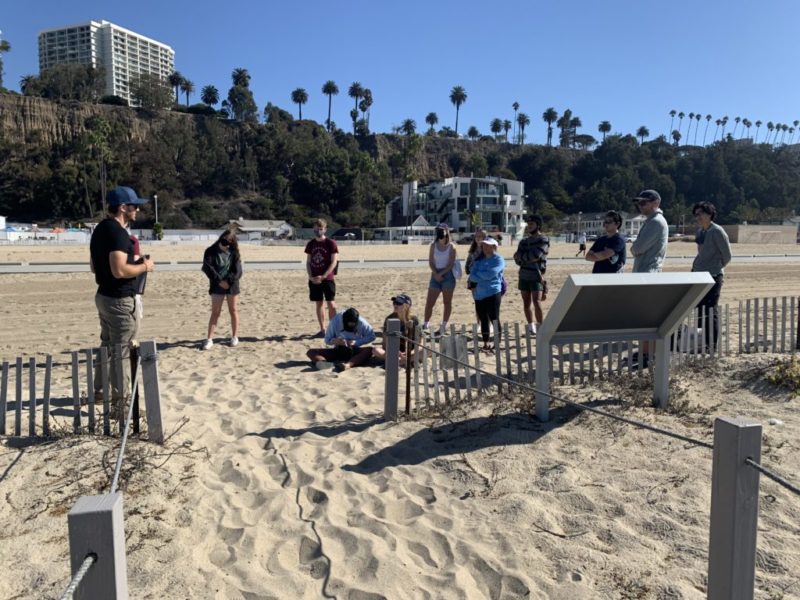
Loyola Marymount University environmental science students will continue to have the opportunity to work on EPA National Estuary Program projects through the LMU Coastal Research Institute. EPA recently renewed its funding for the program, which brings in $70,000 a year to support student and faculty research.
The Environmental Science Program is seeing a growth in the number of students passionate about applying science to address environmental challenges.
Environmental science students get real-world exposure applying what they learn in class through field research during the academic year and summer.
“The Coastal Research Institute offers opportunities year-round to work in the field,” says Lambert Doezema, director of the Environmental Science Program, co-director of the CRI, and professor of chemistry and biochemistry. “This past summer we supported six faculty members with grants and 16 student internships, which typically come with a stipend and housing.”
Undergraduates also get involved in research through the capstone projects they’re required to complete during their senior year. They learn research methods, how to disseminate their findings, write journal articles, prepare poster presentations, and deliver oral presentations. Students present their work to all faculty and students at the end of April and many publish their work in leading journals.
“The amount of passion they have for their work and the quality of their research is impressive,” says Doezema.
Truly an interdisciplinary program in every way, students take courses in biology, chemistry, engineering, physics, and math as freshmen and sophomores.
“We want to expose students to as many sciences as possible during their first two years,” says Doezema. “Then in upper division, students can choose to tailor their courses to focus in areas they’re passionate about.”
What do students with a BS in Environmental Sciences do after graduation? Some go straight to work with environmental organizations or governmental agencies, while others use their science background to help inform policy decisions or go on to graduate school.
“We have a graduate down at the Port of Los Angeles working on air quality and a recent graduate at the Jet Propulsion Laboratory working with NASA,” Doezema says. “There’s definitely a growing need for these skills.”




